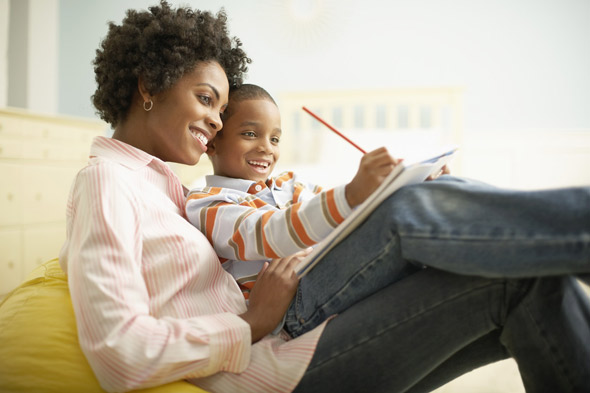|
|
|
MENU
About Us: | The A Team | | Babies Class | | 18 Months Class | | 2- 3 Year Class | | 3 - 4 Year Class | | 4 - 5 Year Class | | Grade R |
|
|
|
ENQUIRIES
|
|||||
|
EVENTS
|
|||||
|
|||||
Helicopter ParentingHovering Doesn’t Help Your ChildParents who try to protect their children from every knock in life are not doing them any favours.
The parenting challenge is to get the balance right
I’ve met a five-year-old who still drinks from a bottle, a six-year-old who won’t eat unless he’s on Mumsey’s lap, a four-year-old still on the boob, countless ten and eleven-year-olds who can’t even put on their own sunblock, let alone tidy their own bedrooms or help with basic domestic chores.
Their moms and dads are ‘helicopter parents’, because they’re always hovering: in the hallway as junior plays with friends; on the sidelines of sports fields making sure their precious offspring don’t get hurt or worse, lose; outside the teacher’s office to explain how exceptional their offspring are or that their poor performance has a very valid reason.
Helicopter parents completely run their children’s lives, overseeing them at every turn, making sure that hardships of any kind are never experienced. Their parents won’t let them explore a jungle gym alone, let alone remove the training wheels from their bikes, which they ride in helmets and knee-pads on thick sand.
Disadvantaged Children
Studies reported in the journal Psychology Today show that hyper-parenting is massively disadvantageous to children’s development because it’s the failures, the challenges and discomforts of childhood that create resilient, emotionally mature, independent adults (which is really the one goal of good parenting).
Without experiencing the ignominy of losing, the pain of rejection from friends, the disappointment of failing and the reality that in life, one doesn’t always get one’s own way, it seems we never really grow up. In short, these children are not learning to take responsibility, develop initiative, make decisions, or any of the other essential life skills we depend so heavily upon in later life.
And many parents never realise what a disservice their ‘helicopter mode’ is doing to their children until it is too late.
Get the Balance Right
Cape Town-based online psychology counsellor Michele Carelse says that what’s crucial in terms of protecting our children is that a balance be found between “ensuring their safety on the one hand and providing them with opportunities to take part in experiences that will allow them to develop essential life skills on the other. Children learn from experience and experience often means that parents need to allow their children to take risks – and sometimes get hurt,” she continues. “Children who are over-protected may not suffer broken bones or be exposed to situations which are potentially harmful, but they will also not learn to look after themselves or develop problem solving and decision-making skills.”
According to Psychology Today, protecting children from failure is equally damaging. Over-protected school-leavers are prone to greater depression and anxiety, eating disorders, substance abuse and a host of other negative ‘coping’ mechanisms than children who know it is fine not to come first, to get honours, or to make the first team.
Children Learn from Mistakes
The root lies firmly at the feet of parenting. Not only do children pick up their parents’ often outrageous expectations and dreams in terms of success, but they are also being progressively more and more shielded from events that could help them to develop their own ‘backbone’.
At least two mothers I know have kept their children at home because they haven’t prepared well enough for a test, and several others routinely ‘help’ with homework and projects as if a promotion depended on it.
“Making mistakes and experiencing failure are fundamental to the learning experience,” says Michele. “No learning can take place without them. If children are constantly protected from failure or shielded from the consequences of their own actions, they will miss out on many opportunities to grow physically, emotionally and spiritually. This applies in all areas of their lives.”
Michele adds that while extra-murals and educational experiences are of value, “nothing beats free-play in terms of providing opportunities for intellectual, emotional and social development.”
Work in Progress
Invariably, helicopter parenting does not necessarily involve what could be called free-play, with its associated hovering, observation, channelling and supervision.
“For children, play is ‘work in progress’,” continues Michele. “Research shows that children who do not have the opportunity to engage in free-play on a regular basis score lower on IQ tests, have less self-esteem and develop fewer life skills than those who do. In terms of extra-murals and organised activities, more is not necessarily better, especially if this robs the child of free time to use as he or she wants.”
Unfortunately, in a scenario like South Africa’s, with rampant crime statistics and almost weekly newspaper reports about missing children, or raped and murdered ones, it’s not surprising that parental hyper-concern is growing and that parents are on constant alert for danger.
“The trick,” says Michele, “is creating a balance and encouraging age appropriate behaviours that are both without direct mortal or bodily risk, but still challenge your child to grow and learn.”
|
|||||||||||||
|
|
|||||||||||||
|
|||||||||||||










